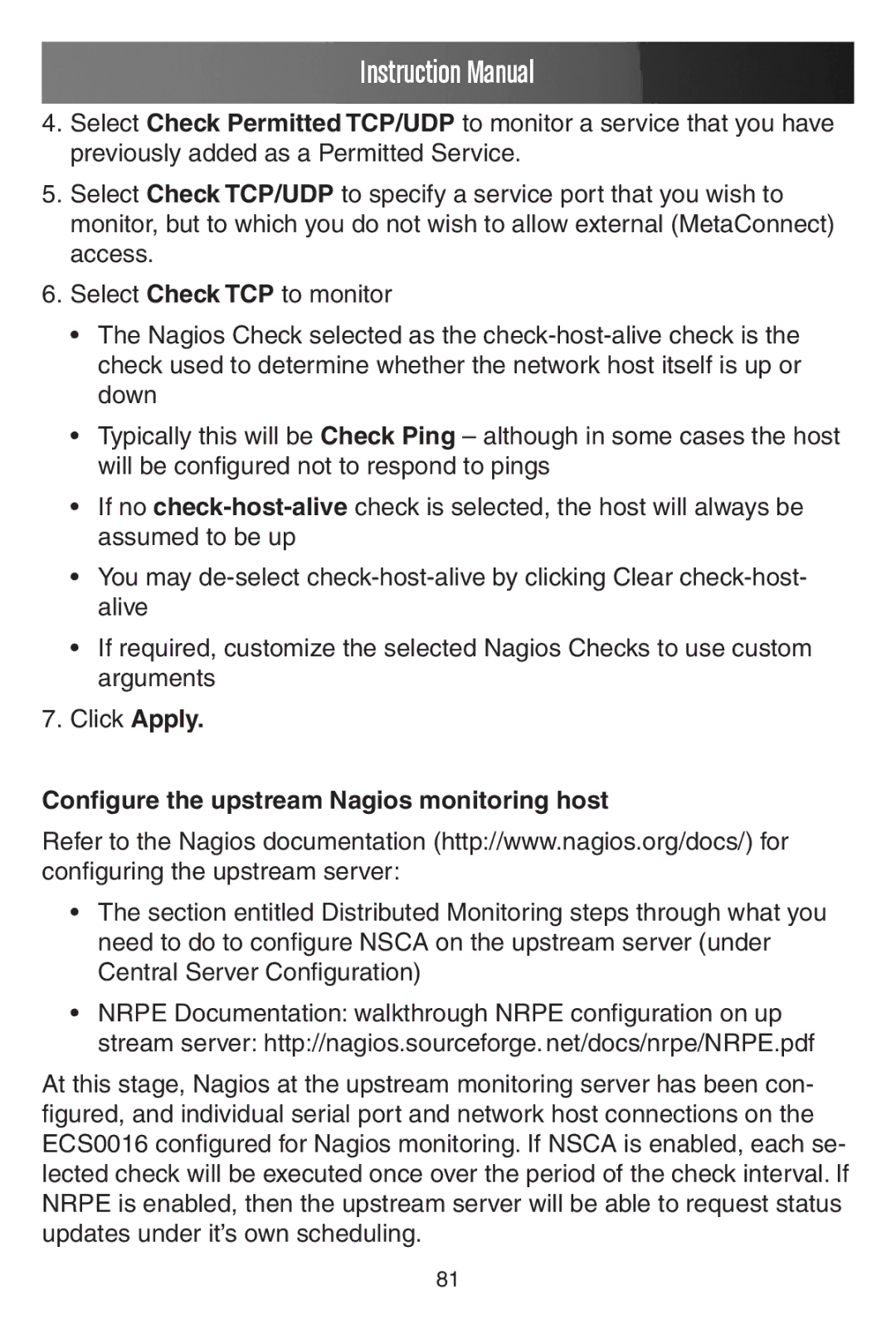Instruction Manual
4.Select Check Permitted TCP/UDP to monitor a service that you have previously added as a Permitted Service.
5.Select Check TCP/UDP to specify a service port that you wish to monitor, but to which you do not wish to allow external (MetaConnect) access.
6.Select Check TCP to monitor
•The Nagios Check selected as the
•Typically this will be Check Ping – although in some cases the host will be configured not to respond to pings
•If no
•You may
•If required, customize the selected Nagios Checks to use custom arguments
7.Click Apply.
Configure the upstream Nagios monitoring host
Refer to the Nagios documentation (http://www.nagios.org/docs/) for configuring the upstream server:
•The section entitled Distributed Monitoring steps through what you need to do to configure NSCA on the upstream server (under Central Server Configuration)
•NRPE Documentation: walkthrough NRPE configuration on up
stream server: http://nagios.sourceforge. net/docs/nrpe/NRPE.pdf
At this stage, Nagios at the upstream monitoring server has been con- figured, and individual serial port and network host connections on the ECS0016 configured for Nagios monitoring. If NSCA is enabled, each se- lected check will be executed once over the period of the check interval. If NRPE is enabled, then the upstream server will be able to request status updates under it’s own scheduling.
81
